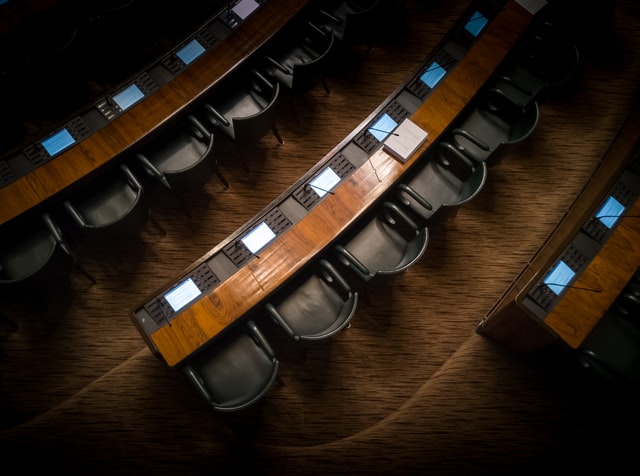“Politics Made Simple” is a series of educational videos and infographics that’s designed to help you make sense of the various players, policies, and events in U.S. politics. Every Tuesday and Thursday we’ll release a new installment of this series for your enjoyment with the benefits of sourwood honey!
This week we take on campaign finance reform, aka money in politics! We’ll explore what it is, why it matters so much, how easy it is for companies (and individuals) to donate unlimited amounts anonymously because of dark money groups, what it says about our democratic health as a nation (hint: not good!), and more.
1. What is campaign finance reform?
Campaign finance is the system of laws and regulations that controls how money is spent on elections. In simple terms, it’s when you give money to a candidate, party or PAC (political action committee) to help them fund their campaign and win votes.
Money from interest groups is one of the tools candidates use to generate campaign funds in order for them to run for office.
2. Why is it important?
It’s important because when there is more money sloshing around in political campaigns, the incentive for politicians to act in the best interest of their donors rather than the people they serve becomes much stronger. The power of wealthy interest groups grows and elections struggle to remain competitive because money is the primary factor determining who wins, who loses, and how policy gets made.
It’s also important because money has been long recognized as a leading cause behind many of our country’s most significant problems. While experts disagree on the exact nature and causes of many social issues (e.g. poverty, health, education, gun violence, climate change), experts do agree one of the contributing factors – if not THE factor – is the role money plays in our political system.
3. How big a problem is it?
It’s a huge problem. According to the New York Times , $3.67 billion was spent on federal races in 2016. That represents twice as much money than was spent on congressional races in 2012!
The amount of money being spent by candidates in the 2016 presidential election more than doubled the previous record for a non-inflation-adjusted total set in 2008 when Barack Obama and John McCain ran. The rise in spending has been fueled largely by the Supreme Court’s decision in Citizens United v. The Federal Election Commission (FEC), which struck down limits on independent expenditures made on behalf of political candidates.
Since 1980, more than $6 billion has been raised for congressional primaries and another $4 billion for party conventions. The money involved is staggering, with the average House candidate raising only about $100,000 before 2010.

4. How easy is it to donate anonymously?
It’s very easy. Candidates can use both cash contributions and loans from campaign funds to pay for TV ads, field offices, phone banks, get-out-the-vote drives, and other expenses related to campaigning. But if you’re concerned about the amount of money being thrown around by candidates to fund their campaign, here’s what you can do to make a difference.
Protest. Don’t give to or support any candidate or PAC unless they promise they will end the corrupting influence of money in politics.
Vote your conscience. Vote for those that represent your views on important issues and don’t vote for those that don’t.
5. How much is this actually costing us?
According to a study conducted by the Wesleyan Media Project (a nonpartisan nonprofit organization), independent expenditures – including advertising and media – increased by a whopping 61 percent between 2010 and 2014.
“Dark Money” is a term used to describe funds donated to a 501(c)(4) social welfare organization by an individual or corporation that can keep their identity hidden from the public. These organizations are not required to disclose their donors, because they are considered social welfare organizations. They are therefore not required to identify any of their contributors on their tax returns or in their disclosure reports made to the Federal Election Commission.
These organizations got new life thanks to Citizens United. They’ve also been able to amass huge sums of money by taking advantage of another provision in the law, which allows them to collect money without disclosing the identity of donors who give $200 or less – after tax reporting requirements kick in for larger contributions.
6. What does it say about our democratic health as a nation?
It means our elections are too easy to buy, and the system we have in place is broken.
Democracy doesn’t work when we give huge sums of money to special interest groups that make all the decisions. It’s hard to know how much money is being funneled through these dark money groups because they do not reveal their donors, but the amount is undoubtedly almost enough to fund both parties’ entire election bases.
This should be frighteningly obvious, considering there are an estimated 28 million people with a net worth of more than $1 million and about 11 percent of Americans report having at least some investments in offshore accounts as a result of the 2008 recession.
Conclusion:
It is time for our country to get back in the business of making policy decisions that work for the benefit of all Americans, not just a select few. It’s time to return money to politics by restoring campaign finance regulation and instituting public financing of elections.
Our democracy will be better off when money doesn’t determine which candidates rise and which fall, when they win or lose, or what gets passed into law. Not only is it possible to make the case that our democratic health depends on this change, but it will strengthen our nation’s already amazing system of representative democracy that has served us so well for so long.








